My PhD concerns a longstanding question—how do valuable metals move through volcanic systems? Since starting my PhD in September 2018, I’ve been looking forward to testing my hypotheses on this topic in the field, on a six-week expedition called the Metals in Magmas field campaign. Like many Earth scientists, I spent months planning the project’s logistical and technical details. But, two weeks before the fieldwork was set to begin, the outbreak of the current global pandemic stopped the project in its tracks. My plans are now on hold and my PhD can’t continue as originally billed. In this blog post, I hope to share my perspective on the impact of COVID-19 on my PhD research.
The Plan
When I started my PhD, it wasn’t clear how we would address my thesis topic. I knew I wanted to frame it as a regional study: how do varying conditions between different volcanic centres affect metal abundance and depletion? Very quickly I realised that Java, Indonesia, would be a perfect field location. Thanks to a grant application that I’d made before coming to Cambridge, I had contacts at Universitas Gadjah Mada (UGM), one of the biggest universities in Indonesia, who would be perfect partners for the burgeoning field project.
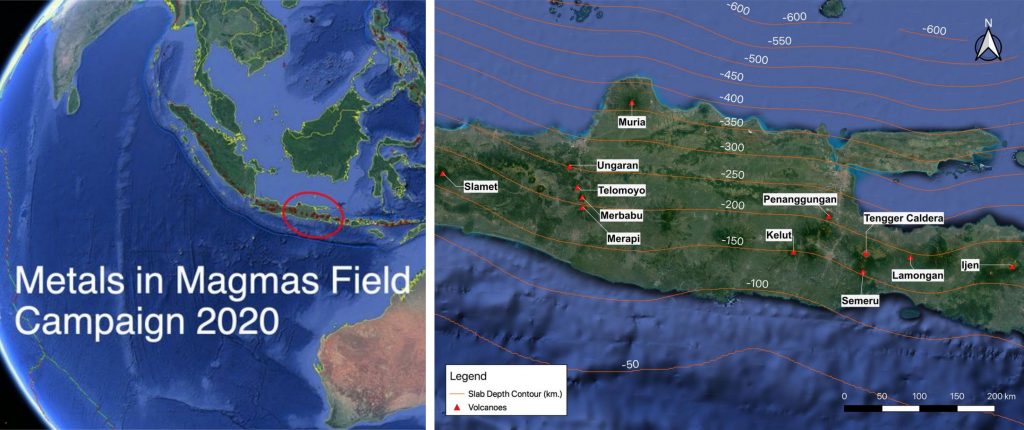
My wonderful and generous colleagues weren’t the only factor making Java a perfect choice—the island is a diverse geological laboratory. Java shows large variations in: crustal thickness, sediment subduction, volcanic eruption style, faulting, and ore deposition; all in an area roughly the size of England. Natural samples from active volcanoes in this area could be used to test what combination of pressure, temperature, and magmatic history is most favourable to achieve metal depletion or enrichment in erupted lavas. Java also contains some of the world’s most infamous and fascinating volcanoes: Gunung Merapi, 30 km north of UGM, is famed for its deadly pyroclastic flows; and Kawah Ijen (a few hundred kilometres to the east) is known for its acid lake and ‘blue lava’—actually molten sulphur.
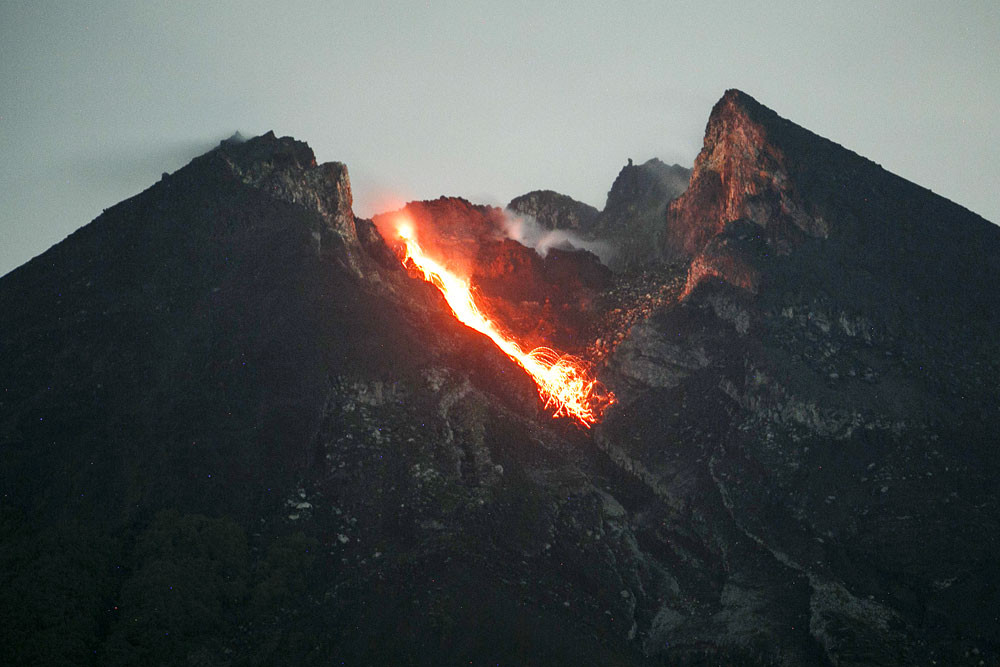
After more than 14 months of Skype calls, grant applications, logistics planning, and even a three-week intensive language course in Java, I had secured enough funding (from the School of Physical Sciences, Churchill College, and the Geological Society of London) and permissions (from the Indonesian research permit authority) to make the Metals in Magmas field campaign a reality. By early March, plans for 44 days in the field had been finalised, and I was about to book the Cambridge team’s flights when everything came to a screeching halt.
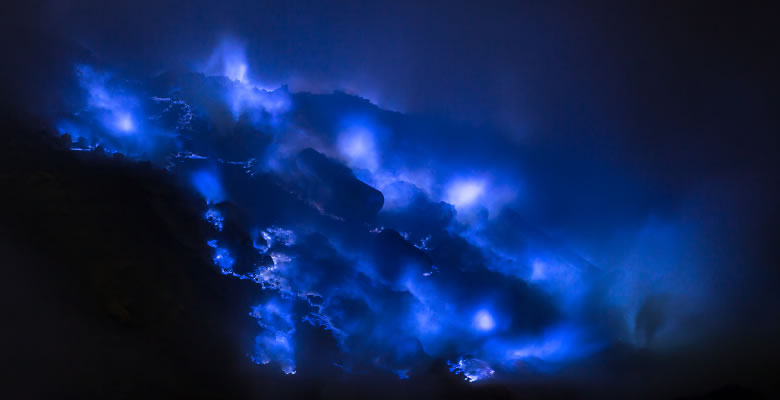
The Virus
As the reality of the past weeks has shown, coronavirus has upended every aspect of our lives. Our work, education, healthcare, and social lives have been completely changed as a result of this pandemic. In my case, the effect of the virus has been difficult to explain to others. Essentially, my PhD as I had planned it can’t happen anymore—a conclusion I reached almost immediately after I made the call to delay our fieldwork. Even assuming the best possible global response, I figured that I wouldn’t be able to get into the field until at least the summer. Given the situation now, in May, summer fieldwork is off the table, and will realistically have to wait until next spring.
Those who know me would say that I’m an unashamed optimist, and I’m usually able to find the good in any situation. But there’s no way around it: having 14 months of work amount to nothing just plain sucks. I think that’s one thing I’ve been trying to avoid admitting to others and myself. However, it does me no good to deny just how emotionally invested I was in this fieldwork. I have woken up some days unconsciously thinking to myself: “you’d be finishing sampling at Bromo today, and gearing up for the drive to Ijen.”
I thought that cancelling the project wouldn’t affect me as much as it has, because I spent the previous 14 months suffering delay after delay due to a number of permitting issues, and built up a pretty thick skin. After receiving my permits in late February, I was almost delirious with joy. But to then have the foundation of that emotional state knocked out from under me was disorienting and, most of all, depressing. Since March, even though my confidence has started to return, I can’t help but feel a sense of mourning over what would have been the most fun and interesting component of my PhD.
At the same time, this whole situation reminds me just how lucky I am. Despite the difficulty that comes with being an international student, I have support from great supervisors (Marie, Helen, and Fran), a wonderful college (Churchill), and a generous scholarship (Gates-Cambridge). I can work from home comfortably with my partner Ashleigh, and as I’ll discuss below, my research has found a way forward. Most critically, I’m not on the front lines fighting this virus, nor am I classed as vulnerable. I may feel upset and frustrated at losing this opportunity to do fieldwork, but I’m not putting my life on the line each day like our healthcare workers, police, shop workers, delivery drivers, and all the other essential workers around the UK. Nor am I disadvantaged in a way that makes this lockdown a true personal crisis. Having this perspective is important, and it’s what makes the effect of this crisis difficult to explain from the perspective of a PhD student. I’ve come to accept that it’s ok for me to feel both immense frustration at the situation, and immense appreciation for how privileged I am.
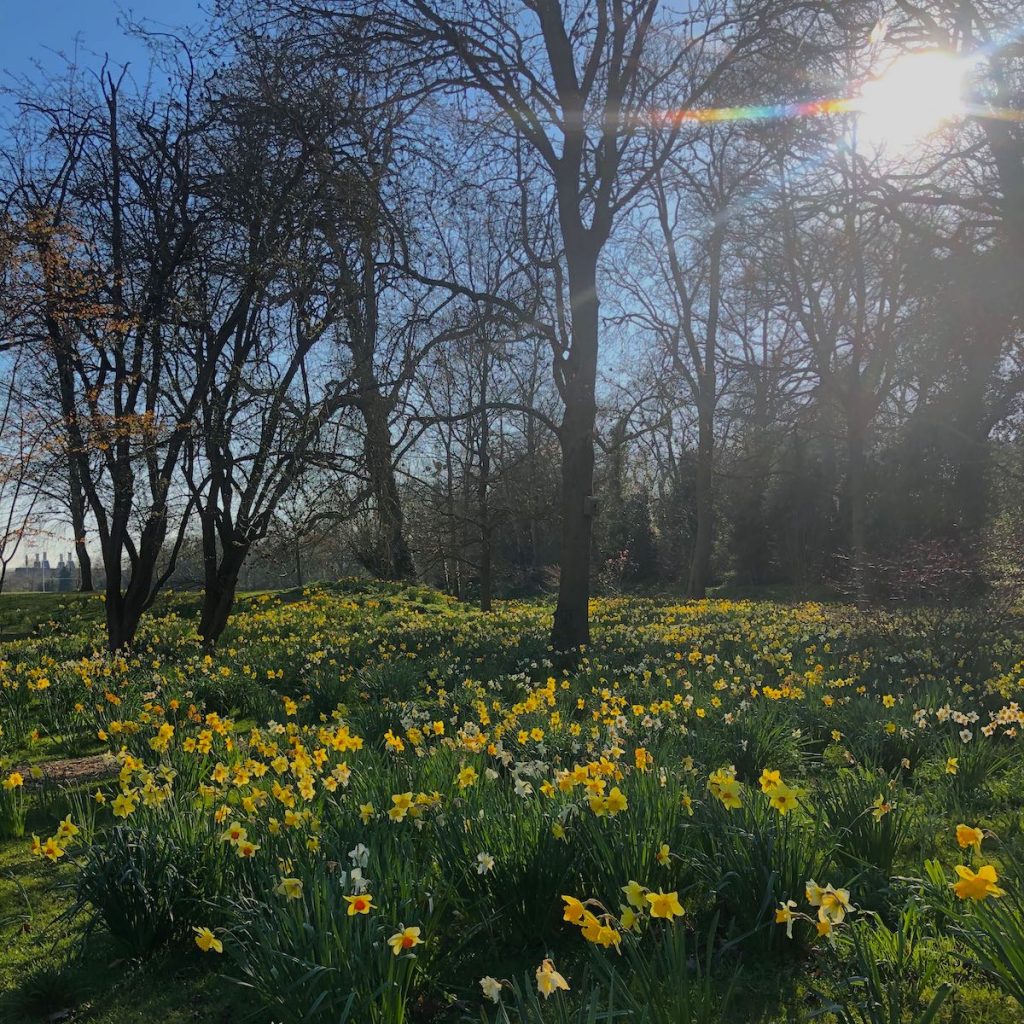
The Future
So what’s my plan going forward? As with many students, plans are always changing. However, one upside to having your fieldwork consistently delayed is that you get pretty good at finding other things to do! I’m finalising my first manuscript—aiming to submit later this month—which was spun out of a self-taught Python course that I designed for myself last spring. I’ve compiled a global database of existing chemical information from volcanoes like the ones that I wanted to study in Java, to better understand the controls on metal behaviour. I’m going to present this work at the virtual Goldschmidt conference in June (abstract available online).
Based on the success of this computational project, my supervisors and I have thought up a few more modelling/database projects that I can work on until laboratories reopen. Then I can continue working on the loaned samples that I’ve been given. But while lockdown remains, I have more time for cooking and outdoor runs, and can keep busy in my dual roles as Graduate Affairs Representative and self-appointed social-activity-coordinator for the Department. I look forward to returning to this blog when I do eventually make it into the field, hopefully at the start of 2021.
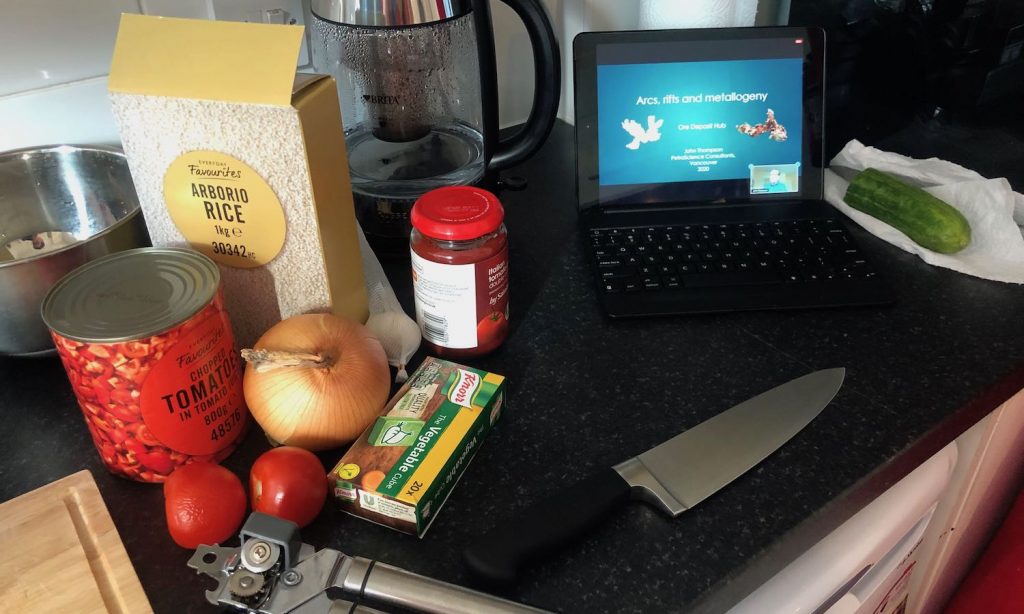
As a final thought, I hope that any students, researchers, faculty, or staff reading this post acknowledge their own feelings about lost work in the way I’ve tried to do here. I’m not suggesting that I’m a model of healthy emotions, but writing this post has actually provided some form of closure for me. In talking to other graduate students during lockdown, I’ve realised that we’ve all felt a mixture of depression, anxiety, and regret—all at different times and different levels of severity—throughout this crisis.
Academic research can sometimes expect us to unconsciously deny these feelings, and replace them with a sort of cool confidence about what we’ll do going forward. I don’t think that this kind of response is healthy. We all need to be open with our friends, colleagues, and supervisors to convey just how impactful this experience has been on us. While this type of emotional candour might be uncomfortable at first, it could open a way forward to more openness, kindness, and generosity in research as we move into a post-coronavirus world.
Visit Nick’s website for more information on his research.
Banner image credit: National Geographic/Manamana
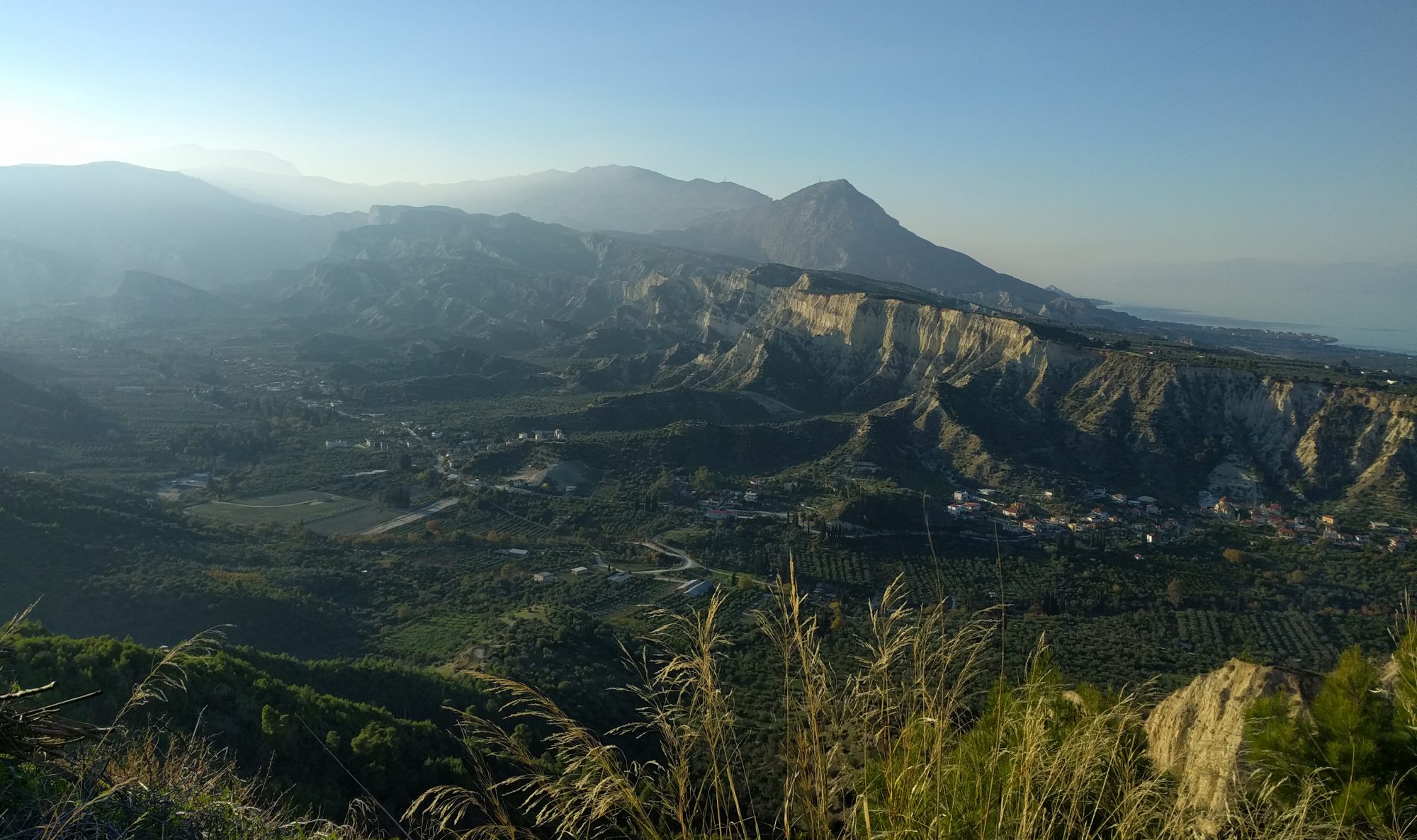

Thanks for posting this. Picked it up via an Earth Sciences alumni email from Richard Harrison yesterday.
Helpful to see an ‘insider’ perspective, on the effects of coronovirus on a PhD. Thank you for your honesty.
Very sorry to hear of the – sadly inevitable – drastic impact on your research. Hope things evolve well from here.
Great to read about the research itself too!
No need to reply.